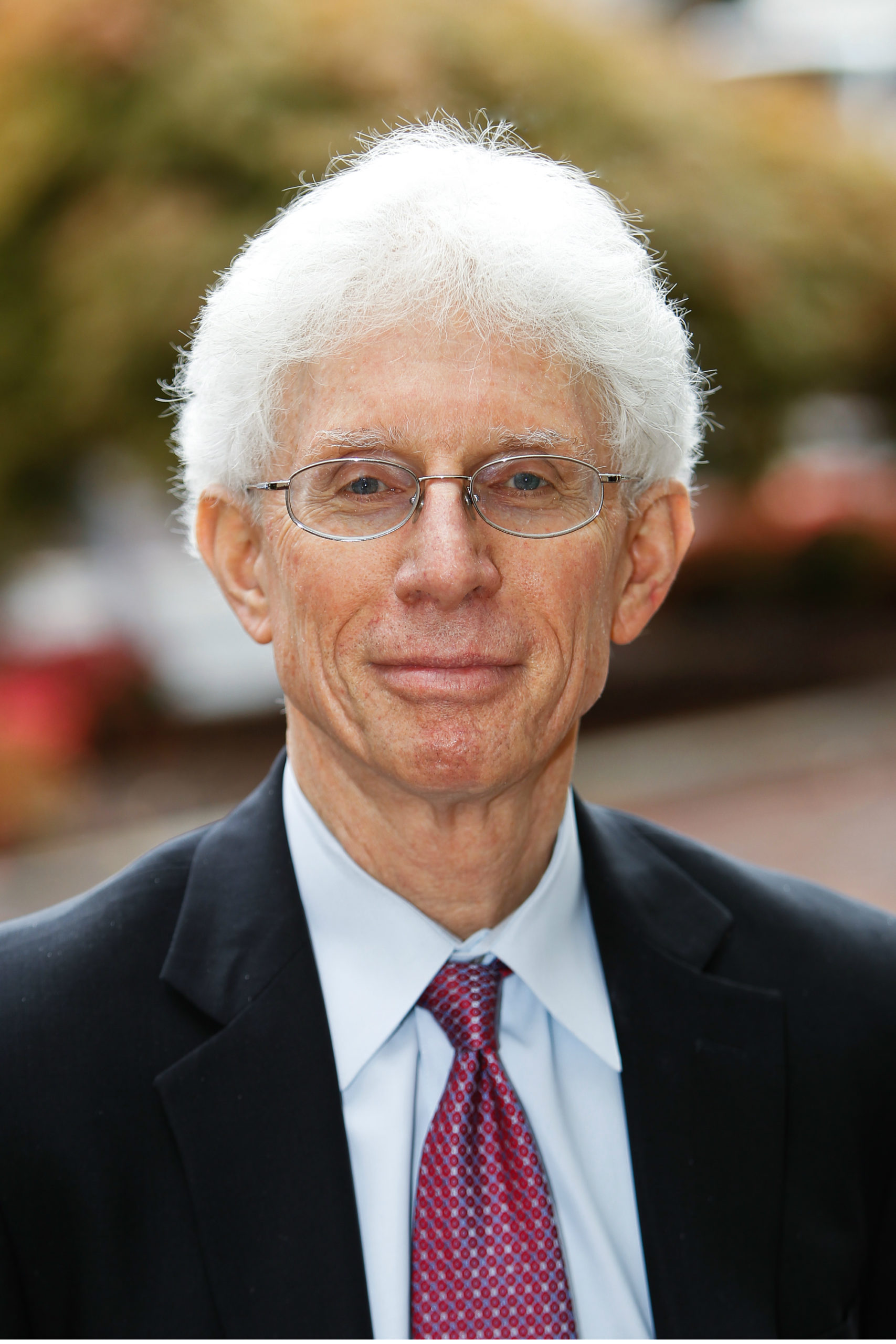The following article is based on William Galston’s remarks during a Providence’s Nationalism Summit at the National Press Club in October 2019. To watch the original talk, click here.
It is interesting to reflect when a topic bursts into public view and comes to dominate public discussion: Why nationalism now?
My opening gesture toward an answer to that question is to say that nationalism is not only an affirmative term, it is also an oppositional term. In the current context, the discussion of nationalism stands opposed, on the one hand, to the discourse of internationalism and cosmopolitanism that opposes the nation-state as the basic building block of the international community. On the other hand, the discussion is against tribalism and identity politics. There’s a long tradition in the United States, going back at least a century, of worrying about identity that is less than a national identity—that is hyphenated, to use Theodore Roosevelt’s term—and I think these two worries are in the air and provide context for the nationalism debate.
My next opening comment is ad hominem, but I don’t intend it to be a cheap shot. It is a genuine puzzle. I know both Yoram Hazony and Patrick Deneen; indeed, I’ve debated both of them. I have read their books with great care. If I ask myself what is the single most important common element of those two and their two best-known books, the answer is a deep antipathy to John Locke and the liberal tradition of which he is an important source. That raises a genuine puzzle. What is the relationship between deep antipathy to John Locke and a genuinely American nationalism? To put those two things together, do you have to read John Locke out of American identity? You certainly have to read him out of American creedal identity. Some people are trying to do it, but I would say to that loss-of-Locke right, you will be going against the testimony of the founders. So it is an interesting approach to American nationalism that begins by denying one of the principal sources of American nationalism. Maybe it is a circle that can be squared, but I’m glad somebody else will be making the effort.
A Line from Creed to Culture
I want to advance here just a couple of theses. Thesis number one is that the distinction between creedal identity and cultural identity, between creedal nationalism and cultural nationalism, maybe too stark, particularly for us as Americans. I think most of the people in this room could probably recite by heart—or pretty close—the famous second paragraph of the Declaration of Independence: “We hold these truths to be self-evident,” etc., etc., etc. You know that, and if people abroad know anything about the Declaration of Independence, they know that. I’m astonished by the relative neglect of the first paragraph of the Declaration of Independence, which begins famously, “When, in the course of human events, it becomes necessary for one people.” It then goes on to talk about dissolving the political bands that connect that people with another people. When you get to the end of the famous second paragraph, you find the right of the people to act politically and collectively to alter or abolish the form of government they’ve inherited—maybe even the form of government they made but didn’t work so well—and institute others. So, we have this huge red flag right at the beginning of our founding document; we have an undefined term: “a people.” What does that mean?
Here is how one of the founders—indeed, one of the authors of the Federalist Papers, the least well-known—John Jay answers the question that the Declaration of Independence does not answer. In Federalist No. 2—a paper, by the way, that’s probably been more discussed in the past five years than in the previous 150—Jay talks about “one united people.” That’s the hypothesis, right? He says Providence has given one united people for one united continent:
A people descended from the same ancestors, speaking the same language, professing the same religion, attached to the same principles of government, very similar in their manners and customs, and who, by their joint councils, arms, and efforts, fighting side-by-side throughout a long and bloody war, have nobly established general liberty and independence.
Now, to what extent in contemporary America is that definition of one united people still satisfied? Some historian friends of mine have argued very persuasively that it wasn’t true even when Jay said it, but it is certainly not true now. Are we descended from the same ancestors? No. Do we profess the same religion? Certainly not. Are we very similar in our manners and customs? No. Have we fought a great war together to establish our independence? No. A couple of the conditions are still satisfied. We speak the same language—mostly. We’re attached to the same principles of government—mostly. But that is about as far as Jay’s definition gets in the contemporary context. If we speak of one united people, we can’t do the full Jay anymore. So what can we do?
I published a piece in The American Interest called “Twelve Theses on Nationalism,” in which I reflected on a number of what I regarded as failed definitions of a nation. Here is my definition: a nation is a community united by sentiments of loyalty and mutual concern, that shares a cultural heritage and the belief in a common destiny. I think Yoram Hazony would be reassured by this definition because the Jewish people are certainly a nation in that sense. One of the linchpins of my argument is that people and nation, as I’m formulating it, are basically coextensive terms—a nation is a community of people that fulfills the criteria that I just listed. You could view Jews for two thousand years as a nation in search of a state, and Zionism as the effort to restore the Jewish nation to statehood. The opening line of the Israeli Declaration of Independence speaks of Israel as “the nation-state of the Jewish people.” It could not be clearer. Another example of a nation that fulfills the criterion of one united people or nation also in search of a state is the Kurds. If there is any nation on earth that deserves a state of its own, it is the Kurds. And I don’t think it is bad nationalism to say that. I think it is self-evidently true, has several other virtues, and promotes other human goods as well, even though I can think of some realist objections to Kurdish nation-statehood.
American nationalism includes a dimension of cultural heritage that embraces a specific political norm. Let me call that specific political norm “liberal constitutional democracy.” I contend that when the Pledge of Allegiance talks about “the Republic for which it stands,” republic is not just this diffused res publica. “The Republic for which it stands” is, in fact, one version of liberal constitutional democracy. How do I know that? I know that from the Constitution. Where in the Constitution? Article four, section four, where the national government guarantees to every state “a republican form of government.” What that guarantee includes is exactly that triadic political ideal of liberal constitutional democracy. So the republic to which we pledge our allegiance, and which is part of the shared culture that makes up the American nation, is not politically neutral; it is not just allegiance to any old republic, defined as res publica in any old sense. It is an allegiance to the particular kind of political community that we have here. Call it a regime, if you will.
So that’s the first point. I wanted to make you begin with the American creed, as defined by the Declaration of Independence and appropriated by Abraham Lincoln and so many others. And you are led by the internal logic of that creed, through the definition of a people as morally fundamental to a form of culturalism and a form of particularism. The theory is inert unless you bring that second element. Think of it as a practical syllogism where the second paragraph constitutes the major premise, but the first paragraph is the minor premise, and only then do you get the conclusion of the United States of America.
The Morals of Particularist Loyalty
Here is my second thesis. Nationalism involves a measure of collective self-preference. There is no way around that. I want to argue that collective self-preference is legitimate, but only up to a point. That is in the same way that all particularist loyalties are natural and right up to a point, starting with family loyalties.
Here are some favorite examples of mine—philosophers’ examples to motivate the conversation. You’re on the beach with your family; there is a riptide that pulls two children out too far. One of them is your child; the other is somebody else’s child. Are you obligated to flip a coin if you think you only have the strength and the time to save one? I would argue a moral code that answers that question in the affirmative is humanly monstrous. It is not a moral code that I could support, and I think there are good reasons for that. That is a clear case of tragic, but legitimate, particularist preference. Here is another example in the same vein. You are walking along the beach with your child; a riptide pulls someone else’s child out to sea. Meanwhile, your child stubs his toe and cries out to you for comfort: “Kiss me, daddy; kiss me, mommy!” You realize that if you attend to the emotional well-being of your stubbed-toe child you may very well imperil the life of the child who has been taken out to sea by this riptide. This is a clear case where preference for your child would be a clear moral mistake. Now how do you know that? As an Aristotelian in my youth, I’m happy to join forces with Catholic social thought and say by comparing the nature of the goods at stake, you can discern without a lot of discernment that one trumps the other.
Now this raises a question outside the family realm, in the international realm: How much sacrifice is a particular nation required to make for the good or well-being of the people of other nations? Let me tell you what the two extremes of this argument are. One is global utilitarianism of the sort advocated by the Princeton philosopher Peter Singer. The utilitarian proposition is that everybody is to count for one, and nobody is to count for more than one. And so the moral weight of a citizen of Rwanda is just the same as the moral weight of a citizen of the United States, and the president of the United States and the Congress of the United States are required to be neutrals between those two, and, among other things, redistribute resources from the United States to Rwanda until the marginal dollar does just as much good for the citizen of the United States as a citizen of Rwanda. I view that as an interesting philosophers’ conversation, but a total denial of the legitimate weight of particularity. The other extreme—and some versions, I regret to say, of the “America First” doctrine verge on this extreme—is that we are required to sacrifice exactly nothing in the name of the well-being of people who happen not to have the good fortune of being American citizens. I view that as equally morally preposterous and unacceptable.
Hard Choices
In conclusion, where does all this come to a head? I was in the Clinton administration, and one of the most regrettable decisions that that administration made—and I know this, as President Clinton himself said so—was the decision not to intervene in Rwanda to stop the genocide. As we know, because the international community held back, hundreds of thousands of innocent people were slaughtered. And I think we know for sure that, if we had done something, the loss of life could have been mitigated. And if we had done it at the right time, it probably could have been prevented, or nearly prevented altogether. But if you’re a president of the United States talking to a gold-star parent whose child has lost his life in an intervention in Rwanda to prevent a genocide, what do you say? It’s not a simple question. But in political morality, and certainly in international political morality, numbers matter. If President Clinton had been assured that he could save eight hundred thousand people at the cost of eight American lives, I believe he would have done it. Should a president have done so for eighty, eight hundred, eight thousand, eighty thousand? You know I can keep on cutting the salami. Where do the interests of the people who have elected their leader to represent their nation, to promote their interests, trump concern for other people?
I am not going to leave you with an easy answer to that question because there isn’t one. Nationalism, rightly understood, defends the legitimacy of limited self-preference, and it is the duty of people who lead decent countries to try to figure out what that might mean. In particular cases, it is a tough question, but that does not mean that it is a bad question. Indeed, I think it is in an inescapable question because not asking it is to hazard either the kind of blind risk aversion that prevented us from doing what we should have done in Rwanda, or to tell the citizens of your own country, “I care about you but not more than I care about the citizens of other countries.” Try getting elected on that platform; try governing on that platform.
So, I believe nationalism, as I’ve defined it, is our fate. It is the world’s fate. It is not an entirely bad thing, but it is not entirely a good thing either. That is life.






